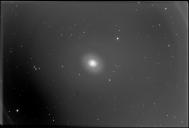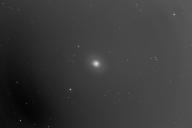Howdy, Stranger!
It looks like you're new here. If you want to get involved, click one of these buttons!
In this Discussion
Bad gradient
I just ran WBPP for a galaxy (M94) using LRGB filters on a C11" EdgeHD @f/10 with an ASI6200mm pro (0.27 arcsec/pixel), under average/below average seeing under Bortle 7 sky. So, there is some oversampling going on. Camera gain is 100 and offset is 50 with subs are 120s each and dithering occurs after every other frame. When I use this setup with narrowband filters, I can produce excellent images, even from faint planetary nebulae. However, the integrated frames from these broadband filters have a horrible gradient. Attached are two examples (Lum on the left and green on the right) that are fully stretched - no DBE has been performed. My question: Does this harsh gradient seem normal for BB images under a light polluted sky or does it seem I am doing something wrong?


M94-Luminance-session_1.jpg
9795 x 6626 - 39M


masterLight_BIN-1_EXPOSURE-120.00s_FILTER-Green_Mono.jpg
9576 x 6388 - 31M

Comments